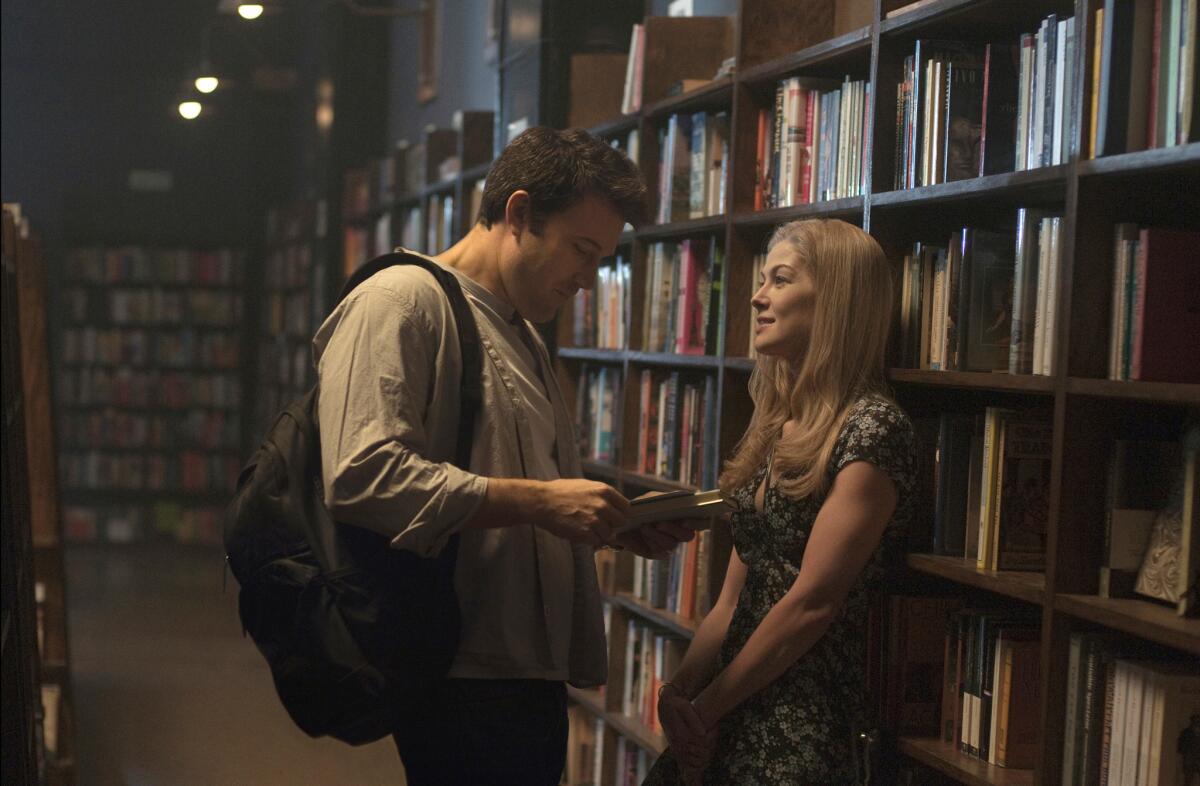Review
Gone Girl, directed by David Fincher and adapted from Gillian Flynn’s best-selling novel, is a razor-sharp psychological thriller that seamlessly blends suspense, satire, and biting social commentary. It is a dark exploration of marriage, identity, and the insidious power of media narratives, executed with Fincher’s trademark precision and flair.
Nick and Amy Dunne appear to be the quintessential modern couple—attractive, intelligent, and seemingly perfect. Beneath their polished exterior, however, lurks a troubled marriage beset by infidelity and financial strain. When Amy vanishes on their fifth wedding anniversary, the veneer shatters. The media frenzy casts Nick as the indifferent husband and prime suspect. But as secrets unravel, the story twists, turning the idea of victim and villain on its head.

At its core, Gone Girl is a critique of modern relationships and the facades couples construct to maintain appearances. Nick and Amy are not just characters—they’re archetypes of a society obsessed with image and performance. As the film delves deeper into their toxic dynamic, it raises unsettling questions about trust, manipulation, and the roles people play in relationships.
Fincher is in his element here, weaving a visually striking and meticulously crafted narrative. The story is told through a series of flashbacks, unreliable narrators, and shocking twists that keep the audience guessing. The cinematography captures the sterile perfection of suburbia juxtaposed with the darkness lurking beneath, while Trent Reznor and Atticus Ross’s eerie score amplifies the tension.
Rosamund Pike delivers a career-defining performance as Amy. Her portrayal shifts between vulnerable, calculating, and terrifying with chilling ease, embodying the complex and unsettling essence of her character. Pike’s performance elevates Amy into one of the most memorable and enigmatic characters in recent cinema.

Ben Affleck, as Nick, is equally compelling. His portrayal of a man teetering between charm and suspicion is spot-on, making the audience question his guilt at every turn. The supporting cast adds further depth, with Carrie Coon shining as Nick’s sharp-tongued yet compassionate sister, Margo, providing a much-needed emotional anchor. Kim Dickens as Detective Rhonda Boney offers a grounded perspective, and Neil Patrick Harris and Tyler Perry take on surprisingly nuanced roles that challenge their usual personas.
What sets Gone Girl apart is its fearless exploration of media’s role in shaping public perception. The film highlights how the court of public opinion can condemn or exonerate someone based on curated narratives. Nick’s desperate attempts to tailor his image to fit the public’s expectations underscore the performative nature of modern life, where truth often takes a backseat to perception.
The film’s final act, a polarising mix of grotesque satire and grim resolution, cements Gone Girl as a daring and unconventional piece of cinema. It subverts the tropes of the thriller genre, offering a pitch-black commentary on marriage and societal expectations.
Final Thoughts
Gone Girl is a masterful, unsettling, and deeply cynical film that pushes boundaries and keeps viewers on edge from start to finish. It’s a testament to Fincher’s skill as a director and Flynn’s brilliance as a storyteller. With unforgettable performances, sharp social critique, and a narrative that twists and turns like a knife, it stands as one of the most provocative thrillers of its time. Not for the faint-hearted or those seeking a tidy resolution, Gone Girl is a cinematic tour de force that challenges, shocks, and enthralls in equal measure.

























